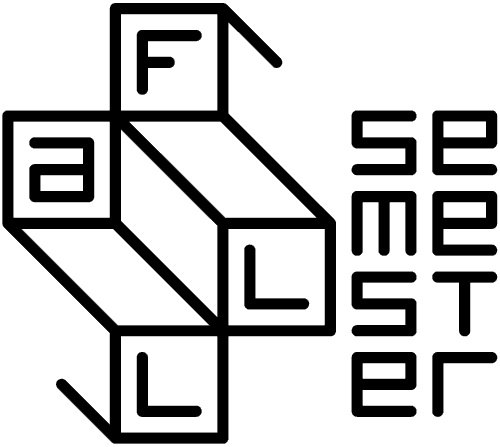/SPRING BREAK 2020/
Leonardo Caffo
Tabatha Hannah, a student at St. Clair Community College, center, talks with Miami Beach police officers during spring break, Saturday, March 14, 2020, in Miami Beach, Fla. Portions of South Beach were closed late Saturday. [LYNNE SLADKY | AP]
Originally posted in Italian by Leonardo Caffo in his personal website on March 22, the same was published in English by NERO MAGAZINE on March 25, 2020.
In 2017 I published Fragile Umanità (Fragile Humanity, Einaudi) where I claimed humanity to be at the verge of collapse, as our ecological niche and our “regular” life would have soon succumbed under the weight of either an epidemic, or an environmental catastrophe or a bad management of resources. The Homo Sapiens’ fragility can be read as twofold: (1) conceptual—we do not know what “humanity” really is, where the extension of this concept begins or ends, as we do not really understand whether there would be a best model applicable to all human beings (for instance, what kind of problems the Yanomami will face in case of Covid-19? Would it be a resource for them?); (2) objectual—we do not know when humanity will give up interpreting progress as a continuous pushing its own limits and planetary resources.
Neglectful of the issue of fragility, most of humanity is currently fighting against a virus: if it will be acted only upon the effects (the virus itself) rather than on the causes (the conditions which made the virus possible), the battle will be lost. Society as we know it will survive—perhaps by finding a vaccine with periodic recall within a few months, or by radically changing the rules of sociability and introducing periodic quarantines—or definitively collapse. It is clear that survival and collapse are the two movements most associated with the current state of affairs. If our society survives now, it will collapse at the next epidemic or ecological crisis; if society collapses later, it might instead be able to immediately establish a new paradigm of coexistence between the planet and Homo Sapiens.
Ideas on progress which were so far considered obvious have turned out to be fatal misconceptions for the whole human species. Progressive philosophies and technologies giving for granted that we would have lived forever, contributed to fill the planet with piles of technologies and urbanized the world, believing that it would be enough to fix co2 emissions or to sell water bottles over single-use plastic, and actually did nothing but definitely thwart the chance for Homo Sapiens to spend a life on this planet worth living. These days, the expression “return to the normal world” is often used, as if what was there before Covid-19 could be considered “normal”: social disintegration, poverty, animal exploitation, environmental destruction, ever-increasing damage on the planet and on nature. All these could perhaps appear normal to the tiny slice of Western humanity convinced that the last fifty years of widespread well-being were the norm rather than an alteration based on other peoples exploitation, wars, famines and brutal elimination of diversity.
The unconditional development of globalization and technologies has inflicted irreparable damage to the texture of reality causing—we have infinite names to describe this state of affairs, from Anthropocene to Capitalocene—a very long period of painful damage adjustment. We are now at the dawn of this very long painful period.
In the various positions of power we have held, all of us have contributed to reduce every living organism and lifeform to commodities. Animals and biodiversity have become food, as we see today science has turned them into useless bodies for testing drugs and vaccines, while nature has been considered as something external to us. Today we end up being surprised that a bat eaten alive has blown up our ordinary lives, although social diversity and poverty have been institutionalized. Our world—while it collapses we become aware that it won’t be over but for the world-as-we-know-it—has averted investing into things that would have been particularly useful today, such as universal health, mandatory ecology, the end of animal exploitation, the end of the ideas of nation-state and local citizenship. Today, humanity at large is united against what could have saved humanity itself—nature.
Obviously, when the general system would suddenly collapse, the consequences will be extremely painful: none of us is really ready to change their lifestyle and this could inevitably lead to some kind of natural selection, or some sort of new species. Nevertheless, as most radical philosophies have suggested for decades, it should be clear to us that if the system tries to grow back after Covid-19 boasting new periods of economic happiness at the expenses of ecology, the final result will not be the pain of many but the end of us all. Today, we find ourselves at this crossroad, institutional politics is completely unprepared for.
It doesn’t matter at all when this will happen, whether in ten months or ten years, what matters is an immediate awareness toward the end of the exploitation of collective ignorance (the real scourge to fight against), to tell what will come after, after the end of all quarantines, in which way and how much should we prepare for the reconstruction, joyfully. We all know that even if the internet would fail us for overload these days, a definitive collapse of sociality would lead us to an unimaginable revolution.
Instead of mimicking our ordinary lives, through Instagram conferences or parties on Facebook and Tik Tok, we should immediately instruct the population for the extraordinary: countryside over city, nature over technology, a short life worth living over mere survival, the end of time-spending and the beginning of the pursuit of life.
As home confinement poses issues related to class struggle we used to ignore while living the false myth of collective well-being, when confined in our homes today each of us knows now that nothing will be as before: we are terrified of change, and none of us has perhaps ever felt as alive. A newfound time to think, to read, to write, to love, but also to experience depression: to understand that what we used to call normal life was actually the very condition that made this tragedy possible.
It doesn’t matter to understand whose fault was it, because evil is widespread; what’s important now is to attempt to govern fragility, by understanding that this kind of world no longer exists and time has come for “a new human species” (as I said in Fragile Humanity) to appear in the world.
In the muffled society we now feel rejected from, we needed a minimum effort to have everything: food, water, fun, travel. Probably, another kind of world is waiting for us instead, where everyone will have to be the maker of their own existence, thriving otherwise. Will we be less people? Maybe. Will we live less? This might as well be. So these ideas according to which technology would make us immortal and perfect were all false? Obviously so. But then shall we prepare ourselves to consider some diversions as over, in favor of achieving real goals? I’m afraid we must.
In the upcoming days and months, the situation may even worsen: if science won’t find an immediate cure, home confinement will generate frustration, domestic killings, self inflicted violence, alienation, follies and personality disorders. Everything we concealed in the drawer, hoping to be rescued by all the “obligations” on our agendas, now will suddenly resurface. It will hit hard, it will be necessary to work for this above mentioned world conscious of the fact that it is not us who design the real, but rather the real that tailors our selves.
These few pages are a simplification of a thought that for years philosophers and intellectuals considered to be minorities have been producing against the widespread technological enthusiasm, against the idea of a “better” future always better than the past. Today’s humanity—as fragile as never before—can enter a new evolutionary phase by considering itself unique and united, with no ethnic groups nor nations, no divisions nor selfishness. Was our world full of comfort and certainties? Surely, but it was also a world full of wars, violence, killings and biodiversity massacres … certainly not the “normal world” we might think to return to.
Our addiction to certain practices has been too often a force way more powerful than the most important aspiration of our species: freedom. Eventually we will of course leave these houses, but we won’t get back on a crowded tram to work twenty hours a day because that world, fortunately, will collapse either today or tomorrow. We naively thought we had an immense power over nature, a power that turned out to be a shortcut towards self-destruction. Therefore the question is: how many other models are already there to exist in this world? Please don’t be dogmatic and smile, these few pages are only an approximation to truthful questions that deserve pages and pages; the future of Homo Sapiens is more similar to his distant past than to all the ideologies we had filled our pseudo-certainties with.
I may be wrong, maybe it will not be Covid-19 but Covid-25 to give us this “chance” but the time to think and prepare for everything that has been said it’s still too short. Let’s get going right away.
Leonardo Caffo is philosopher and curator. Currently, he is co-curator of the Public Program at La Triennale Milano and professor of Ontology at Politecnico, in Turin. He is professor of Philosophy of Art at NABA, in Milan.


![Tabatha Hannah, a student at St. Clair Community College, center, talks with Miami Beach police officers during spring break, Saturday, March 14, 2020, in Miami Beach, Fla. Portions of South Beach were closed late Saturday. [LYNNE SLADKY | AP]](https://images.squarespace-cdn.com/content/v1/56ec53dc9f7266dd86057f72/1586874926859-NAP3Z5E52A2Q3DQRMMXA/2.jpg)
























